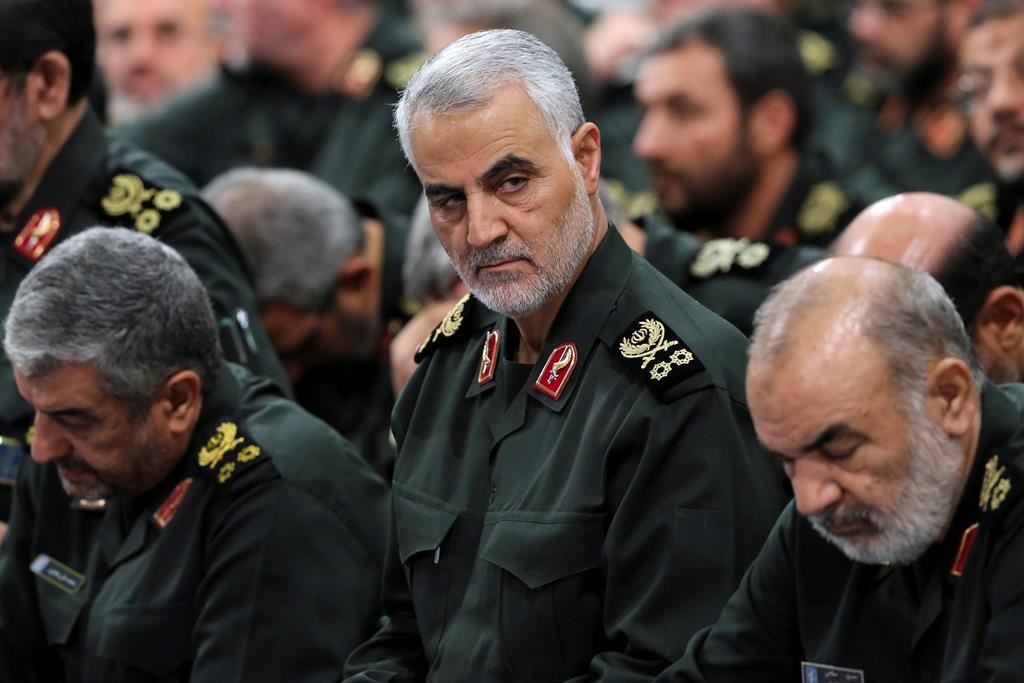The federal government is advising Canadians travelling to multiple countries in the Middle East to “exercise a high degree of caution” following a United States drone strike that killed a top Iranian general on Friday.

Advisories warning of “increased tensions in the region” as the result of the strike were added to affected countries.
“The security situation could worsen with little warning. There is an increased threat of attacks in general,” the advisory read. “Remain extremely cautious if you are in the affected area.”
The statement was added to travel advisories for Saudi Arabia, Jordan, Kuwait, Lebanon, Bahrain, Oman, Israel and the United Arab Emirates on Saturday.
Canadians have been advised to avoid travelling to Iraq since October after widespread anti-government protests broke out — dubbed the Iraqi Intifada. With regard to Iran, the federal government emphasized the need for caution and for Canadians to steer clear of all demonstrations and large gatherings.
“There is an increased threat of attacks against Western interests and of terrorist attacks in general,” the travel advisory for Iran read. “Violent demonstrations could occur in the coming days. The security situation could worsen with little warning.”
The updated travel advisories came shortly after U.S. President Donald Trump ordered an airstrike that killed Gen. Qassem Soleimani, 62, and others as they travelled from Baghdad’s international airport early Friday morning.

The Pentagon said Soleimani was “actively developing plans to attack American diplomats and service members in Iraq and throughout the region” prior to his killing, but has been unable to provide specifics thus far. Trump has staunchly defended his decision, insisting he took action “to stop a war.”
“We did not take action to start a war,” said Trump on Friday.

Get daily National news
Soleimani, often referred to as the country’s second-in-command, led Iran’s elite Quds Force, responsible for its foreign campaigns. Iranian state television reported that 10 people were killed in the airstrike.
The killing marks an escalation in rising U.S.-Iran tensions. Iran has declared three days of national mourning and promised “forceful revenge” for Soleimani’s death.
U.S. officials said 3,000 additional troops would be sent to the Middle East as a precaution.
Canada has approximately 955 troops serving across six different operations in the Middle East, with about 850 of them serving in Operation IMPACT in Iraq, Jordan, Lebanon, Kuwait and Qatar — where Canada is leading a multinational coalition fighting against the so-called Islamic State.
The Department of National Defence said there are approximately 200 members in Iraq. National Defence Minister Harjit Sajjan said in a statement he was suspending all training activities in Iraq to ensure the safety of several hundred mission members.

“We are taking all necessary precautions for the safety and security of our civilian and military personnel.”
Matthew Fisher, a fellow at the Canadian Global Affairs Institute and former foreign correspondent, told Global News he believes the risks extend beyond Iran and Iraq.
“If I were a Canadian, I would not be travelling anywhere in the Middle East right now, not just in Iran and certainly not in Iraq either, but also to places such as Lebanon, where Hezbollah is very strong,” he said.
Fisher added he expected a spate of terrorist attacks and kidnappings as retribution for the attack.
Bessma Momani, a senior fellow at the Centre for International Governance and Innovation and political science professor at the University of Waterloo, expressed concerns that Iran would lump Canada and the U.S. together when it came to avenging the death of its slain general.
“We are more likely in harm’s way. We need to be careful about our movement as Canadians and as Westerners, both in Iraq and throughout the region at the time,” said Momani.
“The impact will be one that I think will be felt and reverberate for many years to come and may include lots of people dragged into it.”
— With files from David Akin and Andrew Russell.









Comments
Want to discuss? Please read our Commenting Policy first.